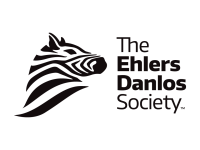About Ehlers-danlos national foundation (ednf)
The Ehlers-Danlos National Foundation (EDNF) is a non-profit organization that aims to provide support and resources for individuals affected by the Ehlers-Danlos syndromes (EDS), hypermobility spectrum disorders, and related conditions. The foundation was established in 1985 by Nancy Hanna Rogowski, who was diagnosed with EDS herself.
The Ehlers-Danlos syndromes are a group of genetic connective tissue disorders that affect the body's ability to produce collagen, which is essential for maintaining healthy skin, joints, and organs. There are currently 13 subtypes of EDS recognized by medical professionals, each with its own set of symptoms and complications.
The EDNF provides a wide range of services to individuals affected by EDS and related conditions. These services include educational resources on the various subtypes of EDS, support groups for patients and caregivers, advocacy efforts to raise awareness about these conditions among healthcare professionals and policymakers, research funding opportunities for scientists studying these disorders.
One of the key initiatives undertaken by EDNF is their patient registry program. This program collects data from patients with EDS or related conditions in order to better understand the prevalence and impact of these disorders on individuals' lives. This information can then be used to inform research efforts aimed at developing new treatments or improving existing ones.
In addition to their patient registry program, EDNF also offers an online community forum where patients can connect with one another for support and advice. They also host an annual conference where patients can learn more about their condition from leading experts in the field.
Overall, the Ehlers-Danlos National Foundation plays a critical role in supporting individuals affected by EDS and related conditions. Through their educational resources, advocacy efforts, research funding opportunities,and patient registry program they are helping improve outcomes for those living with these challenging disorders.
